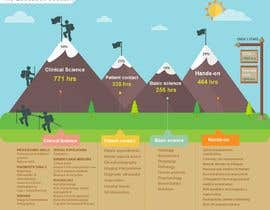The Connection Between Tension And Neck Pain: Practical Stress-Reduction Techniques
The Connection Between Tension And Neck Pain: Practical Stress-Reduction Techniques
Blog Article
Developed By-McDonough Cherry
You're possibly no stranger to the tightness in your neck that appears to approach when tension levels climb. The link between stress and neck discomfort is undeniable, but have you ever before considered just how sensible stress-reduction techniques could use alleviation? Imagine a world where you might break without the hold of stress-induced neck discomfort and find a sense of tranquility and convenience. Stay tuned to find basic yet powerful techniques that might reinvent the method you handle stress and reduce neck pain.
Understanding the Stress-Neck Pain Cycle
Comprehending the Stress-Neck Pain Cycle can offer important insight into how tension materializes literally in the body. When anxiety levels climb, the muscles in your neck and shoulders often tend to tense up as a natural feedback. This stress can result in stiffness, pain, and ultimately pain in the rear location.
The physical symptoms of neck pain can after that better worsen anxiety levels, creating a vicious cycle. As anxiety continues to influence the body, the neck muscle mass can end up being much more stretched, resulting in chronic discomfort and minimized wheelchair.
In addition, stress and anxiety can also contribute to poor stance, as people usually hunch their shoulders or crane their necks when feeling strained or overloaded. rehabilitation center near me can place added stress on the neck muscle mass, bring about enhanced discomfort and discomfort.
Effective Stress-Reduction Techniques
To successfully take care of the physical symptoms of stress-induced neck discomfort and damage the cycle of pain, including tried and tested stress-reduction techniques into your day-to-day regimen is essential.
One efficient method is deep breathing exercises. When you really feel tension developing, take a moment to breathe in deeply with your nose, hold for a couple of secs, and then exhale gradually with your mouth. try this out can help calm your mind and loosen up strained muscles in your neck and shoulders.
One more beneficial method is progressive muscle mass leisure. Beginning by tensing and after that releasing each muscular tissue group in your body, concentrating on the sensation of relaxation as you let go of stress. This technique can help release physical tension and boost general relaxation.
Additionally, exercising mindfulness and reflection can be effective tools for decreasing stress. By focusing on the here and now moment and releasing fret about the past or future, you can reduce psychological stress that contributes to neck discomfort. Incorporating these stress-reduction strategies into your day-to-day regimen can make a significant distinction in managing stress-induced neck pain.
Way Of Living Modifications for Neck Pain Relief
Making way of living modifications can play a substantial function in reducing neck discomfort and promoting total relief. One critical modification is maintaining appropriate stance throughout the day. Ensure your work space is ergonomically friendly, with your computer system screen at eye level and your chair sustaining your reduced back. Integrate normal breaks to extend and move, protecting against tightness and stress build-up.
Furthermore, prioritize normal workout to reinforce your neck and upper back muscular tissues, reducing the threat of pressure. Remain moisturized and maintain a healthy diet plan to sustain optimal muscle mass feature and total health. Carry out stress-reduction techniques such as deep breathing, mindfulness, or yoga exercise to relieve tension that can add to neck discomfort.
Boost your sleep high quality by purchasing a helpful pillow and cushion, and establish a relaxing bedtime regimen. By making these lifestyle changes, you can proactively handle neck pain and improve your quality of life.
Conclusion
To conclude, by including sensible stress-reduction techniques into your everyday routine, you can damage the cycle of stress-induced neck discomfort. Deep breathing, modern muscle mass relaxation, mindfulness methods, and reflection work means to soothe the mind, loosen up neck muscles, and reduce general stress degrees. Making small way of living adjustments can aid alleviate discomfort, promote leisure, and boost your overall wellness. Keep in mind, looking after your mental and physical wellness is key to managing anxiety and neck pain.
